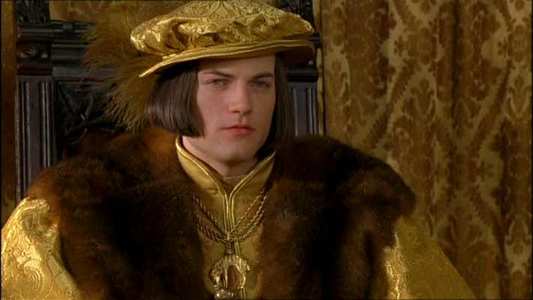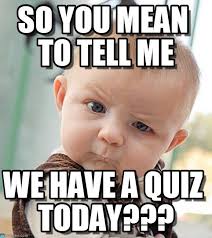Day 102: Ye Olde England
Five Mondays until spring break...and yikes, two more weeks until the end of the grading period. That questions keeps floating around my mind...what have we learned?!
I basically have four preps: AP English, junior English, World History, and my Current Events team that meets during homeroom. Most of my energy goes into AP English; those are my brightest, most engaged kids, and they are also the ones who demand my best every day. They get annoyed when I don't get things graded on time, or leave blanks in the gradebook, or the copier did not get the packet exactly centered before stapling. My current events team gets left in the dust a lot, because I often turn that 4th period academic period into my own personal study hall, and they often need it for academic work too. My two English 3 classes are often the most challenging because I have to differentiate for the different learning levels. I also do a lot of completion grades, because if I didn't, most of the class would be failing on a regular basis. Trying = passing, which is a serious issue with both our public school system and my own teaching philosophy, but that is not what this post is about.
I'd like to take a minute to brag on my freshman and talk history.
I have one freshman class of world history. They're a mid-level class; there are some students who are on the ball all the time, highlight all the readings, and ask connecting questions like, "Was the Holy Roman Emperor always a descendent of Charlemagne?" or "Why were the church services in Latin if no one read it?" There are also a few students who say things like, "Martin Luther - you mean the black guy?" But overall, they are engaged and really a delight to teach.
The curriculum demands that I teach them virtually every aspect of world history, which everyone knows is utter rubbish and impossible to do ever, let alone in 48 minutes a day with a batch of 14-year-olds. So unfortunately I find myself glossing over large swaths of history (usually the parts that I either don't know that much about or that don't seem to connect to our western understanding of the world...they don't get a lot of info on Chinese dynasties or African kingdoms, even though those are super cool). I end up doing a much more Euro-centric view of history A) because next year they need to pass their US history end of course exams to graduate, and this will strengthen their understanding of US history and B) I just know a ton more about it, so I get more excited about it. I know my Harvard social studies education classes would scream heresy, but there's only so much I can cram in.
We've finally come to the end of the middle ages and the Reformation, and as a good Lutheran I actually know something about this time period. Last week I showed them "Luther," a film starring Joseph Fiennes ("Is that Voldemort's brother?") and Alfred Molina ("Is that Doc Octopus?"). I felt like they did a really good job integrating the actual primary source writings into the dialogue and gave them a little insight into the complexities of the reformation. We watched it in 20-minutes spurts along with other discussion, and they really liked it. When we looked up paintings of the major players, they were impressed by how much the movie made the costumes and actors match - all except Luther himself - "But he was fat!"
By the end of the film, they could identify the Holy Roman Emperor (Charles V, a.k.a. "The one who looks like Lord Farquaad"), what a relic was, why people bought indulgences, what Pope Leo X hoped to accomplish, what it means to be excommunicated, and how Gutenberg ensured Luther's optimal timing.
Then, with the Reformation as a sort of light at the end of tunnel, I backed up through European history about 300 years, to King John I and the Magna Carta. We talked about him before Christmas when we started the middle ages, but in the last few weeks my students have gotten really into primary sources, so I decided to have them actually read the Magna Carta. Last week they read the "Requerimiento," a 16th century document that the Spanish conquistadors read to the native peoples, basically saying, "Convert and swear allegiance or else." They enjoyed the connection that King Ferdinand II (the one who sent Columbus) and his daughter Joanna were the ones cited in the Requerimiento, and that Joanna's son was Charles V, the Holy Roman Emperor/Lord Farqaad who tried Martin Luther. The week before they had an excellent discussion over the "loved or feared" essay from Machiavelli's The Prince. Now I know not everyone is reading these documents or participating in the discussion, but they are all listening, and I think all of them are learning new vocabulary and styles of writing.
Anyway, it just so happened that our NPR podcast they listened to yesterday talked about the 800th anniversary of the Magna Carta on the very day we were set to discuss it, so that was lucky.
They also enjoyed the soap opera that was King John I's life (y'know, the mane-less lion prince from Robin Hood..."Miss, was Robin Hood real? Was he really a fox?"). They may have a heading in their notebooks that says, "A-hole things King John did" followed by a list including such acts as
While I'm sure there's more to the history than what I taught today, this was plenty to keep my engaging freshmen engaged, and to recognize that Machiavelli was not writing about King John - he was neither loved nor properly feared.
I basically have four preps: AP English, junior English, World History, and my Current Events team that meets during homeroom. Most of my energy goes into AP English; those are my brightest, most engaged kids, and they are also the ones who demand my best every day. They get annoyed when I don't get things graded on time, or leave blanks in the gradebook, or the copier did not get the packet exactly centered before stapling. My current events team gets left in the dust a lot, because I often turn that 4th period academic period into my own personal study hall, and they often need it for academic work too. My two English 3 classes are often the most challenging because I have to differentiate for the different learning levels. I also do a lot of completion grades, because if I didn't, most of the class would be failing on a regular basis. Trying = passing, which is a serious issue with both our public school system and my own teaching philosophy, but that is not what this post is about.
I'd like to take a minute to brag on my freshman and talk history.
I have one freshman class of world history. They're a mid-level class; there are some students who are on the ball all the time, highlight all the readings, and ask connecting questions like, "Was the Holy Roman Emperor always a descendent of Charlemagne?" or "Why were the church services in Latin if no one read it?" There are also a few students who say things like, "Martin Luther - you mean the black guy?" But overall, they are engaged and really a delight to teach.
The curriculum demands that I teach them virtually every aspect of world history, which everyone knows is utter rubbish and impossible to do ever, let alone in 48 minutes a day with a batch of 14-year-olds. So unfortunately I find myself glossing over large swaths of history (usually the parts that I either don't know that much about or that don't seem to connect to our western understanding of the world...they don't get a lot of info on Chinese dynasties or African kingdoms, even though those are super cool). I end up doing a much more Euro-centric view of history A) because next year they need to pass their US history end of course exams to graduate, and this will strengthen their understanding of US history and B) I just know a ton more about it, so I get more excited about it. I know my Harvard social studies education classes would scream heresy, but there's only so much I can cram in.
We've finally come to the end of the middle ages and the Reformation, and as a good Lutheran I actually know something about this time period. Last week I showed them "Luther," a film starring Joseph Fiennes ("Is that Voldemort's brother?") and Alfred Molina ("Is that Doc Octopus?"). I felt like they did a really good job integrating the actual primary source writings into the dialogue and gave them a little insight into the complexities of the reformation. We watched it in 20-minutes spurts along with other discussion, and they really liked it. When we looked up paintings of the major players, they were impressed by how much the movie made the costumes and actors match - all except Luther himself - "But he was fat!"
 |
| source: biography.com |
 |
| Too skinny and too hot, according to my freshmen. Source: pixgood.com |
 |
| Charles V = Lord Farqaad. Yup. Source: Wikipedia and myreviewer.co.uk |
Then, with the Reformation as a sort of light at the end of tunnel, I backed up through European history about 300 years, to King John I and the Magna Carta. We talked about him before Christmas when we started the middle ages, but in the last few weeks my students have gotten really into primary sources, so I decided to have them actually read the Magna Carta. Last week they read the "Requerimiento," a 16th century document that the Spanish conquistadors read to the native peoples, basically saying, "Convert and swear allegiance or else." They enjoyed the connection that King Ferdinand II (the one who sent Columbus) and his daughter Joanna were the ones cited in the Requerimiento, and that Joanna's son was Charles V, the Holy Roman Emperor/Lord Farqaad who tried Martin Luther. The week before they had an excellent discussion over the "loved or feared" essay from Machiavelli's The Prince. Now I know not everyone is reading these documents or participating in the discussion, but they are all listening, and I think all of them are learning new vocabulary and styles of writing.
Anyway, it just so happened that our NPR podcast they listened to yesterday talked about the 800th anniversary of the Magna Carta on the very day we were set to discuss it, so that was lucky.
They also enjoyed the soap opera that was King John I's life (y'know, the mane-less lion prince from Robin Hood..."Miss, was Robin Hood real? Was he really a fox?"). They may have a heading in their notebooks that says, "A-hole things King John did" followed by a list including such acts as
- taking wives and children hostage when he didn't like someone
- going against the pope for his nomination for archbishop of Canterbury
- declaring himself king against bro Richard's wishes
- murdering Richard's heir
- dumping his wife to marry a 12-year-old
- going to war with France over 12-year-old
- losing most of land in France in war over 12-year-old
While I'm sure there's more to the history than what I taught today, this was plenty to keep my engaging freshmen engaged, and to recognize that Machiavelli was not writing about King John - he was neither loved nor properly feared.




Comments
Post a Comment